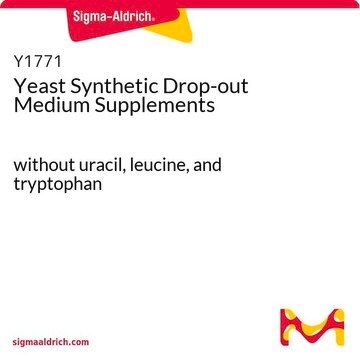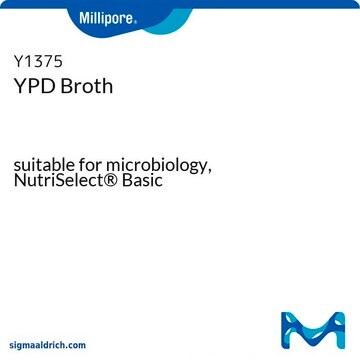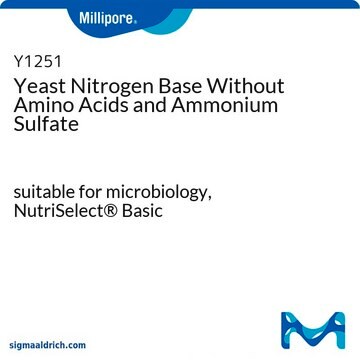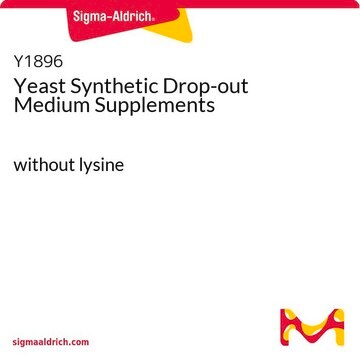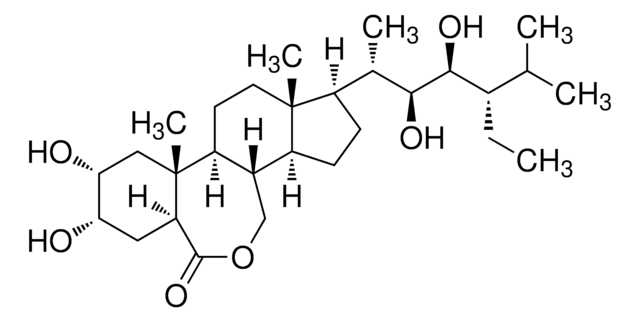Y2021
Yeast Synthetic Drop-out Medium Supplements
without histidine, leucine, tryptophan, and adenine
Synonym(s):
Yeast Synthetic Drop-out Media Supplements
About This Item
Recommended Products
Quality Level
form
powder
technique(s)
transformation: suitable
application(s)
microbiology
storage temp.
room temp
Looking for similar products? Visit Product Comparison Guide
Application
Other Notes
Preparation Note
related product
Signal Word
Danger
Hazard Statements
Precautionary Statements
Hazard Classifications
Eye Dam. 1
Storage Class Code
11 - Combustible Solids
WGK
WGK 3
Flash Point(F)
Not applicable
Flash Point(C)
Not applicable
Certificates of Analysis (COA)
Search for Certificates of Analysis (COA) by entering the products Lot/Batch Number. Lot and Batch Numbers can be found on a product’s label following the words ‘Lot’ or ‘Batch’.
Already Own This Product?
Find documentation for the products that you have recently purchased in the Document Library.
Customers Also Viewed
Protocols
Magnetic-plasmonic nanoparticles: Synthesis and application of Ag/FeCo/Ag nanobeads for cellular organelle imaging and isolation.
Magnetic-plasmonic nanoparticles: Synthesis and application of Ag/FeCo/Ag nanobeads for cellular organelle imaging and isolation.
Magnetic-plasmonic nanoparticles: Synthesis and application of Ag/FeCo/Ag nanobeads for cellular organelle imaging and isolation.
Magnetic-plasmonic nanoparticles: Synthesis and application of Ag/FeCo/Ag nanobeads for cellular organelle imaging and isolation.
Our team of scientists has experience in all areas of research including Life Science, Material Science, Chemical Synthesis, Chromatography, Analytical and many others.
Contact Technical Service





